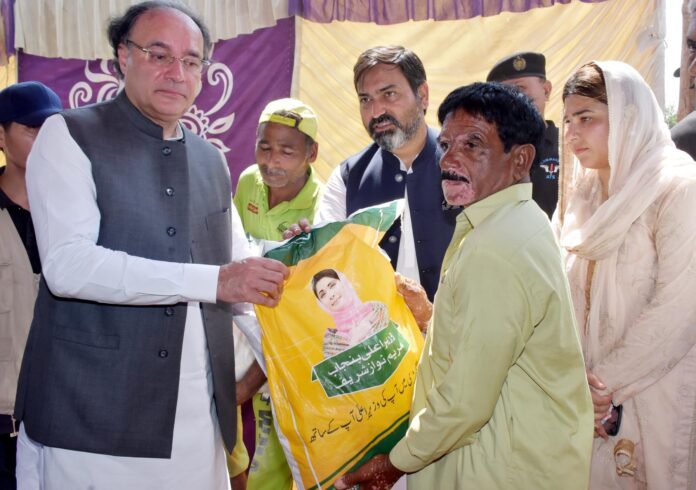Finance Minister and Senator Muhammad Aurangzeb stated on Sunday that Pakistan is closely coordinating with the International Monetary Fund (IMF) as the global lender assesses the economic impact of the recent floods.
Speaking during a visit to flood-affected areas of Toba Tek Singh, including the Mal Fatyana Bridge, the minister said the government is prioritising domestic resources for relief before seeking additional international assistance, noting that “the whole world is watching the difficulties being faced by the Pakistani people.”
Aurangzeb highlighted that the federal cabinet had declared two national emergencies on climate and agriculture to tackle root causes of disasters and their long-term effects. He said over 116,000 of 117,000 flood-affected individuals have been successfully evacuated through coordinated rescue and relief operations.
The minister also warned against hoarding and artificial inflation, stating strict measures are being implemented to curb such practices and control price surges in affected areas.
The finance minister underscored extensive damage to infrastructure, including roads, bridges, and houses, while noting it would be inappropriate to send electricity bills to residents in disaster-hit zones at this stage.
He stressed that climate change, unregulated urban expansion, and unsustainable agricultural practices had contributed to the crisis, remarking, “Poor zoning laws and inappropriate land use exacerbate the damage from natural disasters.”
Aurangzeb expressed confidence that a comprehensive damage assessment is underway, with local, provincial, and federal authorities, alongside the State Bank of Pakistan and financial institutions, expected to complete the evaluation within 10 to 15 days as floodwaters recede. He added that a recovery strategy would be formulated to provide maximum relief, integrating the 300-day climate action plan led by the Ministry of Climate Change, with implementation coordinated at the local level.
Earlier, the IMF expressed sorrow over the loss of lives in Pakistan’s floods and announced that its second economic review mission would assess fiscal policies, emergency measures, and financial requirements for recovery and reconstruction. Sources indicate the IMF team will evaluate whether Pakistan’s current response is sufficient to manage the ongoing crisis.























